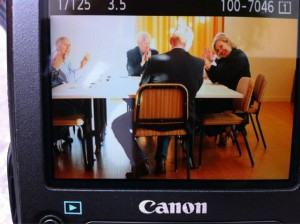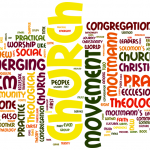“Practice” is all the rage in my field, practical theology, these days. There are books and books about it (hell, I’ve even written books and books about it), and there’s a powerful group of practical theologians who gather regularly under the auspices of the Lilly Endowment to talk about. Craig Dykstra, VP for Religion at Lilly, is the convener of said group, and he’s written about his angle on practices, which is roughly in line with Alaisdair MacIntyre‘s recover of Aristotelian “virtue ethics” (think Hauerwasian Mafia). What I’m saying is, this version of practice study is both well-loved and well-funded in practical theology.
Famously, MacIntyre describes a practice as,
Any coherent and complex form of socially established cooperative human activity through which the goods internal to that form of activity are realized in the course of trying to achieve those standards of excellence which are appropriate to, and partially definitive of, that form of activity, with the result that human powers to achieve excellence, and human conceptions of the ends and goods involved, are systematically extended.[1]
I am struggling with MacIntyre and the concept of practice in chapter three of my dissertation. It’s through practices that I’m trying to get my arms around what is distinctive about the eight congregations that make up the core of my study, from which I will be attempting to make some general ecclesiological claims about the emerging church movement at large. And practices do offer insights into these churches, and the movement. But the study of practices can be limiting, and I’m grappling with that as well.
For one, I’m looking to Pierre Bourdieu and his concept of habitus, which inherently challenges MacIntyrian practice,
Systems of durable, transposable dispositions, structured structures predisposed to function as structuring structures, that is, as principles which generate and organize practices and representations that can be objectively adapted to their outcomes without presupposing a conscious aiming at ends or an express mastery of the operations needed in order to attain them. Objectively “regulated” and “regular” without being in any way the product of obedience to rules, they can be collectively orchestrated without being the product of the organizing action of a conductor.[2]
But, in order to find an even deeper critique of practice, over the next couple of days I’ll be reading some Kierkegaard (recommended by Andy Root) and some Nicholas Healy (recommended by Chris Scharen) — the dudes at Luther Sem are coming through for me!
PS: Be sure and check out Andy‘s and Chris‘s books.
[1] Alasdair C. MacIntyre, After Virtue: A Study in Moral Theory, 2nd ed. (Notre Dame, Ind.: University of Notre Dame Press, 1984), 187.
[2] Pierre Bourdieu, The Logic of Practice (Stanford, Calif.: Stanford University Press, 1990), 53.











